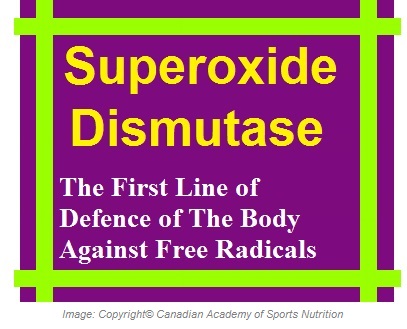SOD is an enzyme that catalyzes the conversion of superoxide into hydrogen  peroxide. Along with catalase and glutathione peroxidase, it is the first line of defence of the body against damages caused by free radicals. It is a manganese-zinc-copper containing enzyme and one of the naturally found antioxidants in the body.
peroxide. Along with catalase and glutathione peroxidase, it is the first line of defence of the body against damages caused by free radicals. It is a manganese-zinc-copper containing enzyme and one of the naturally found antioxidants in the body.
Natural Sources:
SOD is found in small amounts in honeydew melon, casaba melon, cantaloupe, corn, Swiss chard, spinach, crimini mushroom, asparagus, mustard greens, spirulina, romaine lettuce, green beans, berries especially strawberries and raspberries, pineapple, oats, brown rice, yeast, bovine liver, and chicken liver.
Potential Health Benefits of SOD:
- A potent antioxidant.
- May reduce inflammation in rheumatoid arthritis (RA).
- May have a protective effect against cataracts and macular degeneration.
- Hepatoprotective effect against liver fibrosis.
- Neuroprotective effect against Alzheimer’s disease, Parkinson’s disease, and Ice Bucket Challenge Disease (Amyotrophic Lateral Sclerosis; ALS).
- May stimulate the growth of hair follicles and prevents from graying hairs.
- Radiation – induced fibrosis.
- An adjuvant therapy in severe burns with mustard gas.
Dosage:
SOD can be used orally or intravenously. A common dosage is 500 – 750 mg per day. The available products have been standardized for 2000 units of enzyme activity.

